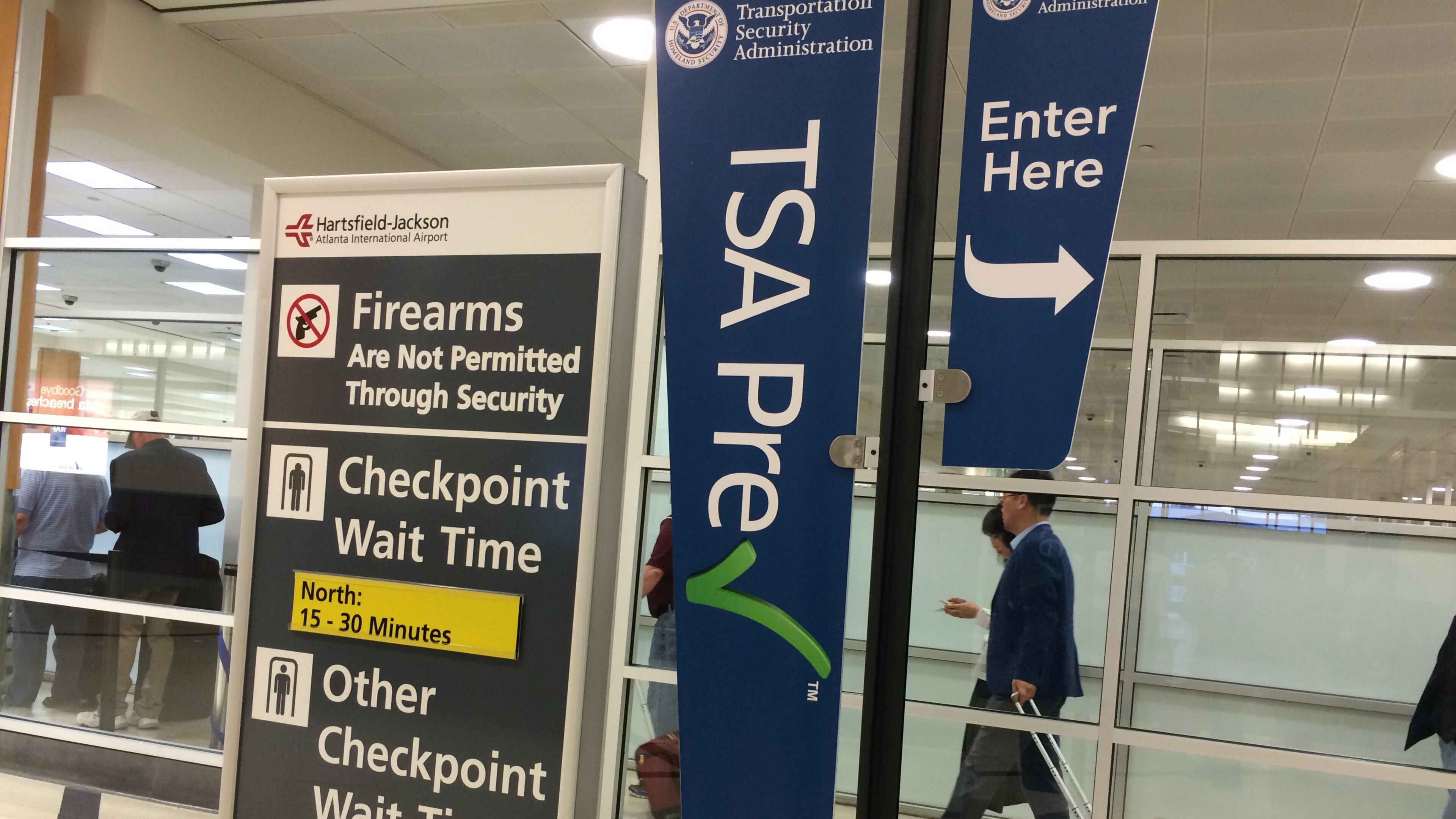Haven't joined TSA PreCheck yet? You're not alone

A key element in the Transportation Security Administration's strategy to manage security lines is to get millions to sign up for its "trusted traveler" program for expedited screening known as PreCheck.
The number of sign-ups is increasing, but is still short of expectations. Airport, airline and TSA officials continue to push travelers to apply for the program.
MORE: PreCheck still a tough call for many fliers
“We look forward to the continued expansion of TSA PreCheck as we continue our drive towards 25 million travelers directly enrolled in DHS traveler programs," said TSA administrator Peter Neffenger in a written statement early this year.
So far, about 10 million people are enrolled in PreCheck and other government trusted traveler programs. TSA launched PreCheck in 2011 and has had enrollment centers since late 2013.
The PreCheck program allows travelers a chance to keep their shoes, jackets and belts on, and to keep their laptops and permitted liquids in their bags. At Hartsfield-Jackson's domestic terminal, there are PreCheck lanes at the main security checkpoint.
But a number of factors in the PreCheck program might make some travelers hesitate to sign up.
For one, it costs $85 to apply. A PreCheck membership lasts five years, making it $17 per year.
Getting an appointment to apply can require a weeks-long wait, with an average of 16,000 applications streaming in each day nationally. TSA currently uses contractor MorphoTrust to operate its enrollment centers, and said it is working to expand the number of enrollment centers.
An average of about 200 people apply per day at the two enrollment centers at Hartsfield-Jackson, in the domestic terminal and on Concourse A. There are also enrollment centers on Clark Howell Highway and on Century Boulevard NE in Atlanta, as well as one in Cartersville.
Another option is to sign up for the U.S. Customs and Border Protection trusted traveler program called Global Entry, which costs $100 to apply for a five-year membership and also includes PreCheck access.
But most people travel infrequently, making expedited airport screening a benefit only used rarely.
According to one survey -- a Washington Post-ABC News poll in 2010 -- 16 percent of respondents in a random national sample said they never fly on commercial airlines. About 32 percent said they travel once or twice a year, while 37 percent said they travel less frequently. That means 85 percent of respondents to the survey said they travel once or twice a year or less. Only 15 percent said they travel at least every few months.
"If you travel two, three times a year, I think you're going to get the value out of it," said TSA spokesman Mark Howell.
But paying for PreCheck does not guarantee expedited screening.
For one, not all airlines participate. If you fly Frontier or Spirit, for example, those airlines don't participate in PreCheck. Even if you are a PreCheck member, you may not qualify to go in a PreCheck line when taking a trip on those carriers.
Not all airports participate. While Hartsfield-Jackson has had PreCheck lines for years, some small airports that travelers may fly to still do not.
In Georgia, for example, only three airports have PreCheck: Atlanta, Savannah and Albany. Other commercial airports in the state including Augusta, Brunswick, Valdosta and Columbus do not.
What's more, when security lines are short during slower travel periods, there is less benefit to a PreCheck membership.
And many travelers already get PreCheck without formally applying for it and paying the $85 fee.
The program launched with complementary PreCheck for elite-level frequent fliers of Delta Air Lines and other carriers. Now, TSA advises travelers that if they want consistent PreCheck access, they should formally apply for membership.
Yet today, many travelers who do not have PreCheck memberships still get expedited screening, including some passengers who are pre-screened and deemed as low-risk based on TSA's Secure Flight rules, and others going through security when TSA canine units are at the checkpoint to screen queued-up passengers for explosives before they reach the metal detectors.
To be sure, frequent travelers and those who want an option to avoid long security lines often sing the praises of PreCheck.

Howell said "it's a win-win for everybody when the population of PreCheck grows... because we're moving them into a quicker process, so both lines go faster." He said at airports like Hartsfield-Jackson, TSA can easily re-configure a regular lane into a PreCheck lane to add capacity.
But it's also worth noting that even if you have paid for PreCheck and are flying a participating airline at a participating airport, "no individual will be guaranteed expedited screening," TSA notes. That's because the agency "continues to incorporate random and unpredictable security measures" at the airport.
PreCheck members find out if they qualify for each flight by checking for the TSA PreCheck logo on their boarding pass.
"Even if you've done the enrollment, there's a chance you won't get it," Howell noted.
And some PreCheck members say the PreCheck lines are sometimes longer than regular lines. TSA says even when the PreCheck line appears longer, it moves more quickly because of the expedited screening.




